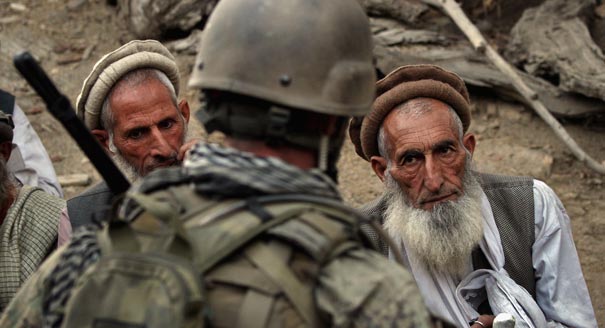President Obama has emphatically underlined a shift in strategy in Afghanistan far more important than the drawdown numbers. Ironically, after a decade of war, half a trillion dollars, and innumerable strategies, it brings the United States back nearly full circle to the limited “no boots on the ground/special forces/air power” approach of the Bush presidency in 2002-03.
From a focus early in his administration on a broad counterinsurgency strategy aimed at improving the “military, governance, and economic capacity of Afghanistan and Pakistan,” President Obama has moved steadily back towards a counterterrorism strategy narrowly focused on killing al-Qaeda and other terrorist leaders and dismantling the groups’ fighting capability.
What’s absent from Obama’s speech tonight tells the story: nothing about working with the Karzai government; the importance of the civilian surge; combatting debilitating corruption; improving U.S. economic development efforts; or crafting a regional diplomatic strategy to ensure Afghanistan’s long-term stability, all of which have consumed American attention at one time or another. This less ambitious approach abandons the long-term goals of nation building in favor of improved intelligence, special forces, drone attacks, and a smaller footprint in country. Where Gen. Petraeus’ counterinsurgency strategy focuses on civilian welfare and counsels avoiding killing insurgents except “when they get in the way,” this strategy is all about killing them.
Because Afghanistan’s future under this new strategy depends on when its army and police will be able to take responsibility for the country’s security, the wisdom of U.S. policies in this regard demands attention. Progress has been made: numbers are way up, literacy is up, and capability is up, though still very limited. But Washington is building a force of more than 300,000 in the U.S. image. Current estimates are that it will cost $6 billion per year to maintain (up from $2 billion just a year ago)—twice what the Afghan government now spends in total. Security forces this large are never a recipe for success: they are much too big relative to everything else in a country whose GDP is a mere $20 billion.
The cost will have to be financed by foreigners indefinitely. That’s affordable for the West. But in addition to money, an army needs a soul. It has to be tied to a country and to a government it is willing to die for. Having tried everything from a close embrace to harsh, public criticism, the United States has now clearly washed its hands of the Karzai government. That is understandable. But there is little in history to suggest that an army trained, equipped, and paid for by foreigners will ever be a loyal or effective fighting force.
One has to wonder, then, whether this new strategy will join all the others that have failed.
Another New Strategy in Afghanistan
In his speech, President Obama laid out a less ambitious approach to the war in Afghanistan that abandons the long-term goals of nation building in favor of improved intelligence, special forces, drone attacks, and a smaller footprint in country.





